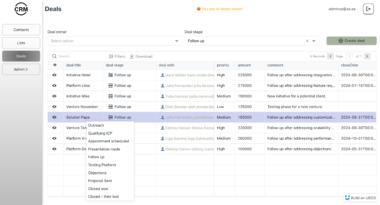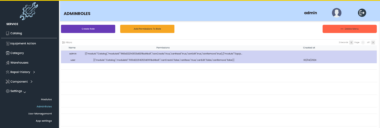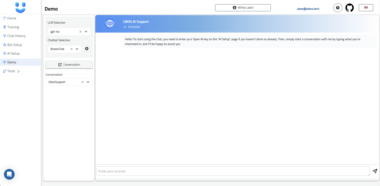Unified Search MCP Server 
A powerful MCP (Model Context Protocol) server that provides unified search capabilities across Google Scholar, Google Web Search, and YouTube. Built with performance and cost optimization in mind.
한국어 README
Features
Google Scholar Search: Search academic papers with basic and advanced filtering
Google Web Search: Search the web using Google Custom Search API
YouTube Search: Find videos with various filters (duration, upload date, etc.)
Unified Search: Search across all sources simultaneously
Smart Caching: TTL-based caching to reduce API calls and improve performance
Rate Limiting: Built-in rate limiting to respect API quotas
Progress Reporting: Real-time progress updates during searches
Fully Async: Optimized asynchronous operations for better performance
Key Improvements Over Original
- API-Based Searches: Uses official APIs (Google Custom Search, YouTube Data API) instead of web scraping for better reliability and performance
- Caching System: Implements TTL-based caching to reduce redundant API calls
- Rate Limiting: Automatic rate limiting to prevent API quota exhaustion
- Concurrent Searches: Unified search executes all searches in parallel
- Better Error Handling: Comprehensive error handling with detailed error messages
- Context Integration: Full integration with MCP Context for logging and progress reporting
Installation
Quick Install via Smithery (Recommended)
After publishing to Smithery, users will install it through the Smithery platform, which will automatically add the configuration to Claude Desktop.
Manual Installation
- Clone the repository:
git clone <your-repo-url>
cd unified-search-mcp-server
- Create a virtual environment:
python -m venv venv
source venv/bin/activate # On Windows: venvScriptsactivate
- Install dependencies:
pip install -r requirements.txt
Configuration
Set the following environment variables for API access:
# For Google Web Search
export GOOGLE_API_KEY="your-google-api-key"
export GOOGLE_CSE_ID="your-custom-search-engine-id"
# For YouTube Search
export YOUTUBE_API_KEY="your-youtube-api-key"
Getting API Keys
Google Custom Search API (for web search):
- Go to Google Cloud Console
- Create a new project or select existing
- Enable “Custom Search API”
- Create credentials (API Key)
- Create a Custom Search Engine at cse.google.com
Important: This is for general web search, NOT Google Scholar!
YouTube Data API v3:
- Same Google Cloud Console project
- Enable “YouTube Data API v3”
- Use the same API key or create a new one
Google Scholar:
- No official API available
- Free access through scholarly library
- May be temporarily blocked with excessive use
Usage
Running the Server
python unified_search_server.py
Or use FastMCP CLI:
fastmcp run unified_search_server.py
Installation in Claude Desktop
Option 1: Using Smithery (Recommended)
After publishing to Smithery, the configuration will be automatically added in this format:
{
"mcpServers": {
"unified-search-mcp": {
"command": "npx",
"args": [
"-y",
"@smithery/cli@latest",
"run",
"@JDeun/unified-search-mcp",
"--key",
"YOUR-SMITHERY-KEY"
]
}
}
}
Option 2: Manual Configuration
Add to claude_desktop_config.json:
Windows:
{
"mcpServers": {
"unified-search": {
"command": "C:\Users\YOUR\PATH\python.exe",
"args": [
"C:\Users\YOUR\PATH\unified_search_server.py"
],
"env": {
"GOOGLE_API_KEY": "your-key",
"GOOGLE_CSE_ID": "your-cse-id",
"YOUTUBE_API_KEY": "your-key"
}
}
}
}
Mac/Linux:
{
"mcpServers": {
"unified-search": {
"command": "python",
"args": [
"/path/to/unified_search_server.py"
],
"env": {
"GOOGLE_API_KEY": "your-key",
"GOOGLE_CSE_ID": "your-cse-id",
"YOUTUBE_API_KEY": "your-key"
}
}
}
}
Available Tools
1. search_google_scholar
Basic keyword search for academic papers.
result = await mcp.use_tool("search_google_scholar", {
"query": "machine learning",
"num_results": 5
})
2. search_google_scholar_advanced
Advanced search with author and year filters.
result = await mcp.use_tool("search_google_scholar_advanced", {
"query": "deep learning",
"author": "Yann LeCun",
"year_start": 2020,
"year_end": 2024,
"num_results": 10
})
3. search_google_web
Search the web using Google Custom Search API.
result = await mcp.use_tool("search_google_web", {
"query": "artificial intelligence news",
"num_results": 10,
"language": "en",
"safe_search": "medium"
})
4. search_youtube
Search for YouTube videos with filters.
result = await mcp.use_tool("search_youtube", {
"query": "python tutorial",
"num_results": 15,
"video_duration": "medium", # short, medium, long
"upload_date": "month", # hour, today, week, month, year
"order": "viewCount" # relevance, date, rating, viewCount
})
5. unified_search
Search across all sources simultaneously.
result = await mcp.use_tool("unified_search", {
"query": "climate change",
"sources": ["scholar", "web", "youtube"],
"num_results_per_source": 5
})
6. get_author_info
Get detailed author information from Google Scholar.
result = await mcp.use_tool("get_author_info", {
"author_name": "Geoffrey Hinton"
})
7. clear_cache
Clear cached search results.
result = await mcp.use_tool("clear_cache", {
"source": "web" # scholar, web, youtube, or None for all
})
8. get_api_usage_stats
Monitor API usage and status.
result = await mcp.use_tool("get_api_usage_stats", {})
# Returns: usage counts, error counts, cache status, remaining quotas
Performance Optimizations
- Caching: Results are cached for 1 hour (configurable) to reduce API calls
- Rate Limiting: 0.5 seconds between API calls to prevent quota exhaustion
- Parallel Execution: Unified search runs all searches concurrently
- Async Operations: All I/O operations are asynchronous for better performance
- Smart Retries: Failed searches don’t affect other sources in unified search
 Important Notice
Important Notice
About Google Scholar
- No Official API: Google Scholar does not provide an official API
- Blocking Risk: Excessive use may result in temporary IP blocking
- Commercial Use Prohibited: Check Google Scholar’s terms of service
- Alternative: Consider official APIs like Semantic Scholar API for academic search
About API Keys
- GOOGLE_CUSTOM_SEARCH_ENGINE_ID: For general web search (NOT Google Scholar)
- Potential Costs: Automatic billing may occur when exceeding free quotas
- API Key Security: Manage keys securely using environment variables
For Production Use
- Log Monitoring: Regularly check
unified_search.logfile - API Usage Monitoring: Track usage with
get_api_usage_statstool - Cache Management: Adjust cache TTL as needed
- Error Handling: Designed so individual source failures don’t affect overall service
API Costs
Google Scholar:
Free (using scholarly library)
Risk of temporary blocking with excessive use
Automatic 2-second rate limiting applied
Google Custom Search (web search):
- Free: 100 queries/day
- Paid: $5 per 1,000 queries (after 100 queries)
Caching prevents duplicate queries
YouTube Data API:
- Free: 10,000 units/day
- Search operation: 100 units per search
Approximately 100 searches per day
Stability Improvements
- Caching: 1-hour result storage reduces API usage
- Rate Limiting:
- Google Scholar: 2-second intervals
- Other APIs: 1-second intervals
- Retry Logic: Automatic retry on Google Scholar blocking
- Error Handling: Independent error handling for each source
Development
Testing
import asyncio
from fastmcp import Client
async def test():
async with Client("unified_search_server.py") as client:
# Test Google Scholar
result = await client.call_tool("search_google_scholar", {
"query": "quantum computing"
})
print(result)
asyncio.run(test())
Adding New Search Sources
- Create internal search function:
async def search_new_source_internal(query: str, **kwargs) -> List[Dict]:
# Implementation
pass
- Add MCP tool:
@mcp.tool()
async def search_new_source(query: str, ctx: Context) -> List[Dict]:
# Tool implementation with caching and rate limiting
pass
- Update unified_search to include new source
Error Handling
The server handles various error scenarios:
- Missing API credentials
- API quota exceeded
- Network failures
- Invalid parameters
- Search timeouts
All errors are logged and returned in a consistent format.
Troubleshooting
API Key Issues
- Verify environment variables are set correctly
- Check API is enabled in Google Cloud Console
- Verify API key restrictions
No Search Results
- Try simpler search queries
- Clear cache and retry
- Check logs for specific error messages
License
MIT License
Contributing
Contributions are welcome! Please feel free to submit a Pull Request.
Acknowledgments
- Based on the original Google Scholar MCP Server
- Built with FastMCP
Unified Google Search
Project Details
- JDeun/unified-search-mcp-server
- MIT License
- Last Updated: 6/16/2025
Recomended MCP Servers
Context7 MCP Server -- Up-to-date code documentation for LLMs and AI code editors
An MCP (Model Context Protocol) tool that provides cryptocurrency market data using the CoinGecko API, specifically designed for...

This read-only MCP Server allows you to connect to HDFS data from Claude Desktop through CData JDBC Drivers....
A Model Context Protocol (MCP) server that provides JSON-RPC functionality through OpenRPC.
A Model Context Protocol (MCP) server that provides Nostr capabilities to LLMs like Claude.

A Serper MCP Server

A MCP Server implementation for interacting with Unreal Engine instances through remote Python execution.
 From vibe coding to vibe deployment. UBOS MCP turns ideas into infra with one message.
From vibe coding to vibe deployment. UBOS MCP turns ideas into infra with one message.





